| |
|
|
June 11-13, 2019 • MIT, Cambridge, MA |
|
|
| |
 |
| |
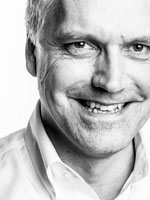 |
John Aunins, PhD view absract | back to agenda
Executive Vice President & Chief Technology Officer, Seres Therapeutics, Inc.
John Aunins is a 30-year veteran in the biotech field, with deep experience in bioprocess development, manufacturing and manufacturing support, and project leadership. He led process and product development teams at Merck Research Laboratories for VAQTA®, VARIVAX®, ZOSTAVAX®, ProQuad®, RotaTeq®, and GARDASIL®. The VAQTA® and GARDASI ® process teams were awarded with ACS Industrial Biotechnology Awards for innovation, contribution to bioengineering, and societal impact. He is a Fellow of the American Institute for Medical and Biological Engineering, and an adjunct Full Professor at the Instituto de Tecnologia Quimica e Biologica (ITQB) in Oeiras, Portugal. He is author of over 60 articles and book chapters, and has chaired six international conferences in vaccines and bioprocess technology. He currently works in the microbiome space at Seres Therapeutics, Inc., a biotech in Cambridge, MA. John obtained his PhD in Chemical Engineering from MIT in 1989 under Institute Professor Daniel I. C. Wang. |
 |
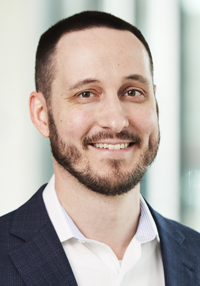 |
Paul W. Barone, PhD view abstract | back to agenda
Director, Consortium on Adventitious Agent Contamination in Biomanufacturing (CAACB), Center for Biomedical Innovation, Massachusetts Institute of Technology
Dr. Barone has been at the MIT Center for Biomedical Innovation since 2010. He currently is the Director of two biopharmaceutical industry consortia housed at MIT: the Biomanufacturing Program (BioMAN) and the Consortium on Adventitious Agent Contamination in Biomanufacturing (CAACB). He manages sponsored projects and activities for both BioMAN and CAACB with topics ranging from analysis of media treatment options to risk assessment and risk control for adventitious agent contamination. In addition to directing the Biomanufacturing initiatives, he helps to manage several sponsored research projects related to biomanufacturing. |
 |
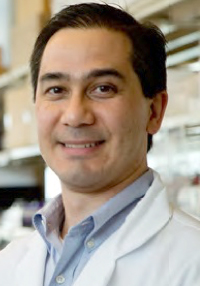 |
Dan Barouch, MD, PhD view abstract | back to agenda
Director, Center for Virology and Vaccine Research, Beth Israel Deaconess Medical Center;
Professor of Medicine, Harvard Medical School
Dan H. Barouch, MD, PhD, is Director of the Center for Virology and Vaccine Research at Beth Israel Deaconess Medical Center and Professor of Medicine at Harvard Medical School. In addition, he is a key part of the Bill & Melinda Gates Foundation Collaboration for AIDS Vaccine Discovery, the National Institutes of Health Martin Delaney HIV-1 Cure Collaboratory, and the Ragon Institute of MGH, MIT, and Harvard. He received his PhD in immunology from Oxford University and his MD summa cum laude from Harvard Medical School.
Dr. Barouch’s laboratory focuses on studying the immunology and virology of HIV-1 infection and developing novel vaccine and eradication strategies. He and his team have explored a series of novel vaccine technologies, and he is also working on strategies to address other global infectious diseases. He has also applied his vaccine expertise to other infectious diseases such as Zika virus and tuberculosis. He has advanced novel adenovirus vector-based HIV-1 vaccine candidates from concept and design to preclinical testing, ten phase 1/2a clinical trials, and a large phase 2b efficacy trial with the mosaic Ad26/Env vaccine in sub-Saharan Africa. He has also pioneered the use of broadly neutralizing antibodies for HIV-1 cure strategies, and a series of phase 1 clinical trials are currently underway. Dr. Barouch also led the world’s first demonstration of Zika vaccine protection in preclinical studies and has launched a series of phase 1 Zika vaccine clinical trials.
Dr. Barouch is board certified in internal medicine and infectious diseases, and he is committed to mentoring students, clinical fellows, research fellows, and junior faculty and to providing clinical care to patients with infectious diseases. |
 |
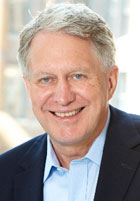 |
Barry C. Buckland, PhD view abstract | back to agenda
Chief Executive Officer, BiologicB, LLC
PhD in Biochemical Engineering at University College London obtained in 1974. Joined the Merck Research Laboratories (MRL) in 1980 and built a world class Bioprocess R&D group. Leader of process development of all biologically made product candidates within the MRL pipeline and manufacture of Clinical Supplies during a 20 year time frame. Products developed within this period include MEVACOR®, ZOCOR®, IVOMEC®, CANCIDAS®, RECOMBIVAX HB®, VAQTA®, VARIVAX®, COMVAX®, RotaTeq® (Rotavirus vaccine), ZOSTAVAX® (shingles vaccine) and GARDASIL® (HPV vaccine).
External awards and appointments include being elected to the National Academy of Engineering in 1997 and Fellow of University College London in 1998. Awards include the Donald Medal, UK Institute of Chemical Engineering in 2002, Prix Galien award: Member of team to receive Vaccine Award for GARDASIL® in 2007, Merck Board of Directors Award for leading process development for licensure of four (4) new vaccines in 2007. Chaired two International Conferences on Cell Culture (Cell Culture Engineering IV and Cell Culture Engineering V) and co-chaired the first three International Conferences on Metabolic Engineering. Co-chaired the first two International Conferences on Vaccine Technology. Author or co-author of over 70 papers. Visiting Professor at University College London for past 15 years. In October 2008, named by AIChE as one of the “One Hundred Chemical Engineers of the Modern Era” (defined as from World War II to Present) as part of the AIChE Centennial Celebration in Philadelphia, USA and also awarded Marvin Johnson Award by ACS (American Chemical Society) for lifetime contribution to Biotechnology. Awarded PhRMA Discoverer of the Year award in April 2009 for development of the Merck HPV vaccine (along with Eliav Barr and Kathrin Jansen).
Starting in May 2009; CEO, BiologicB. Since this time have provided consultancy worldwide to a number of companies and not-for-profit institutions, in all areas of Biologics including Vaccines and Therapeutic Proteins.. Chair of Board for a not-for-profit organization, Engineering Conferences International. Continue as Visiting Professor at University College London. Head, Bioprocess Development at Protein Sciences. The first recombinant Influenza vaccine, Flublok®, was licensed in January 2013. |
 |
 |
Drusilla Burns, PhD back to agenda
Deputy Director, Division of Bacterial, Parasitic, and Allergenic Products, Office of Vaccines Research and Review, Center for Biologics Evaluation and Research, U.S. Food and Drug Administration
Drusilla Burns is Deputy Director of the Division of Bacterial, Parasitic, and Allergenic Products, Office of Vaccines Research and Review at the Center for Biologics Evaluation and Research, FDA. She conducts research in the area of bacterial vaccines. In addition, she is involved in the regulation of bacterial vaccines, live biotherapeutic products and allergenic products. Dr. Burns received her Ph.D. in Biochemistry from the University of California, Berkeley and did postdoctoral training at NIH. |
 |
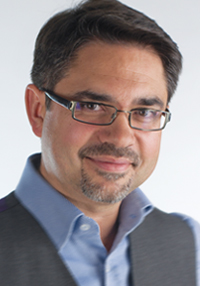 |
José Castillo, PhD view abstract | back to agenda
Co-Founder and Chief Technology Officer, Univercells S.A.
José is co-founder and CTO of Univercells, a Belgian company with the mission of increasing the availability of affordable vaccines and biotherapeutics to address global health challenges. The company develops turnkey solutions by relying on proprietary core technologies and a continuous process intensification approach, achieving production with a smaller footprint, and significantly lower overall capital and operational costs. Previous accomplishments include Artelis start-up, where he designed and developed bioreactors that transformed industrial operations – the iCellis system being now considered as standard in the vaccines and gene therapy industry. |
 |
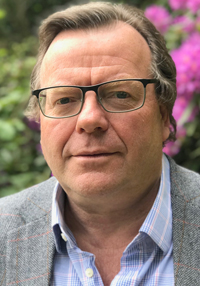 |
Keith Chidwick, PhD back to agenda
Vice President (Technical), PAREXEL Consulting
Dr. Chidwick was a project scientist at Bio products Laboratories, developing manufacturing methods for plasma products. Later on he went on and worked for a consulting/venture capital fund advising on the technical issues of investment in small biotechnology companies. This involved performing technical and commercial due diligence of potential investments. At the MHRA he served as a Senior Pharmaceutical Assessor and was later appointed Deputy Manager of the Biologicals Unit. Reviewed, as the Rapporteur / Co-Rapporteur, for the Quality Assessment 18 MAAs. For 8 years he fulfilled the role of UK expert at EDQM P4 BIO and has been a member of EMA Guideline Drafting groups. In addition to also being a member of the Control Board at NIBSC.
Dr. Chidwick has a BSc and PhD in biochemistry from the University of London as well as a MBA. He has had five years’ experience as a research fellow at the London Hospital Medical School working in the area of inflammation. Additionally, he was a Senior Lecturer in biochemistry at the University of Westminster. |
 |
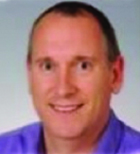 |
Matthew Downham, PhD view abstract | back to agenda
Associate Director, AstraZeneca
Dr. Downham completed a BSc with honours in Industrial Biology (London South Bank Polytechnic, UK), PhD in Biochemical Engineering (Birmingham University, UK), Post-doctoral fellowship in biomolecular sciences (Liverpool John Moores University, UK) and PGCE (Bolton Institute, UK). He has worked in the biopharmaceutical industry since 1997 for Protherics (UK), Bavarian Nordic & Morphosys (Germany), Novartis Vaccines & Diagnostics (Italy), AstraZeneca (UK) – since Feb 2013. Throughout this time Dr. Downham worked on pre-/early clinical development of vaccine, antibody or enzyme therapies for infectious, hypertension, inflammatory & oncology indications: currently scientific and technical affairs for AZs’ seasonal and pandemic live attenuated influenza vaccine. Dr. Downham Chairs the EFPIA Vaccines Europe Influenza working group, is Treasurer of the IFPMA Influenza Vaccine Supply task international force and vice chair of the IFPMA Convention on Biological Diversity working group. |
 |
 |
Kimberly Duffy back to agenda
Executive Director, Global Regulatory Affairs Vaccines CMC, Merck & Co. Inc.
Ms. Duffy has 30 years’ experience in the vaccine manufacturing field and is currently responsible for Merck’s viral vaccine portfolio. Kim's first position was as a technician in vaccine manufacturing and she has held positions in Laboratory Operations, Quality Control, Vaccine Manufacturing, and Regulatory Affairs CMC. Kim joined the Regulatory CMC group in 2007 and has managed global registrations and post-approval changes for a variety of vaccines; specializing in US, Europe, Japan, and China. |
 |
 |
Mark Feinberg, PhD view abstract | back to agenda
President and Chief Executive Officer, International AIDS Vaccine Initiative
Mark Feinberg is President and CEO of the International AIDS Vaccine Initiative (IAVI) where he leads a global team working to advance the development of vaccines and other biomedical innovations to protect against infection with HIV, TB and other infectious diseases that disproportionately impact low income countries.
Prior to joining IAVI in late 2015, Mark served as Chief Public Health and Science Officer with Merck Vaccines. In this role, he helped advance the development and global availability of vaccines against rotavirus, human papillomavirus and other infectious diseases. He also led a range of research initiatives to address unmet health needs in low income countries including the establishment of the MSD-Wellcome Trust Hilleman Laboratories and the coordination of a private-public partnership to expedite Ebola vaccine development. Previously, he spent more than 20 years exploring HIV/AIDS pathogenesis, treatment and prevention research and the biology of emerging diseases in both academia and government.
Mark holds an MD and a PhD from Stanford University, and BA degree from the University of Pennsylvania. He pursued post-graduate medical training at Brigham and Women’s Hospital and postdoctoral fellowship training in the laboratory of Dr. David Baltimore at the Whitehead Institute. He has previously served as a faculty member at the University of California, San Francisco and the Emory University School of Medicine, and as a Medical Officer in the Office of AIDS Research at the National Institutes of Health. |
 |
 |
Stefanie Frank, PhD view abstract | back to agenda
Lecturer in Synthetic Biology; Modular Training for the Bioprocess Industries (MBI), Module Leader Vaccine Bioprocess Development and Commercialisation, University College London
Stefanie is a Lecturer in Synthetic Biology at the Department of Biochemical Engineering at University College London (UCL). She graduated with a PhD in Biochemistry from Queen Mary University of London. During her postdoctoral training and as a Leverhulme Early Career Fellow at the University of Kent she has largely focused on the characterisation and engineering of bacterial protein microcompartments for the construction of novel nano-bioreactors. Since then Stefanie’s work has moved on to molecular design of virus-like particle vaccines (e.g. foot-and-mouth disease) and structure-product analytics as part of a multidisciplinary team of the UCL/Oxford-led Future Vaccine Manufacturing Research Hub (Vax-Hub) which works to address major challenges facing vaccine manufacturing and deployment. In addition, Stefanie is part of a Global Challenges Research Fund project with Thailand supporting the yeast bioprocess development for the production of animal vaccine against porcine circovirus. She is also investigating bacterial nano-compartments as modular platforms for cancer immunotherapy. |
 |
 |
Adrian Hill, PhD view abstract | back to agenda
Professor of Human Genetics; Director, The Jenner Institute, Oxford University
Adrian Hill trained at Trinity College Dublin and Oxford and is now Professor of Human Genetics and Director of the Jenner Institute at Oxford University. His group discovered the ability of heterologous prime-boost immunisation to induce potent T cell responses pre-clinically and has developed this approach to phase II clinical trials in Africa. He has also pioneered the use of small rapid clinical trials to provide initial safety and immunogenicity with a range of novel vaccine concepts. To date he has led over 50 clinical trials on new malaria vaccines, almost all designed by his laboratory research team.
In 2005 he founded the Jenner Institute which aims to accelerate public sector vaccine development for infectious diseases and links human and veterinary vaccine development. In 2014 he initiated the first trials of new Ebola vaccines targeting the West Africa strain of the virus and moved these rapidly to field testing. His has published over 500 papers with an h-index (Google Scholar) of 119, is a named inventor on numerous patents and patent filings and has co-founded four university spin-off companies. |
 |
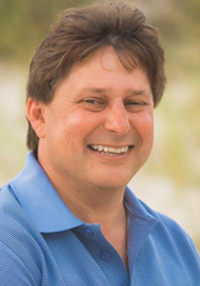 |
Steve A. Kolodziej, PhD view abstract | back to agenda
Associate Research Fellow, Pfizer, Inc.
Steve has been an Associate Research Fellow in the Bioprocess R&D group at the Pfizer-St. Louis site since 2010, where his team has focused on process development of protein conjugates as potential biotherapeutic drug candidates for vaccine (prophylactic and therapeutic), oncology and cardiovascular indications. Prior to this position, he spent 16 years in the Discovery Medicinal Chemistry groups of Searle, Pharmacia, then Pfizer developing novel small molecule candidates as potential therapies for inflammatory diseases, as well as developing novel approaches to PK modulation via protein conjugation. Steve has a BA and a PhD in Organic Chemistry from the University of Missouri. |
 |
 |
J. Christopher Love, PhD view abstract | back to agenda
Associate Professor of Chemical Engineering, Koch Institute, Massachusetts Institute of Technology
J. Christopher Love is the Raymond A. (1921) and Helen E. St. Laurent Professor of Chemical Engineering and member of the Koch Institute for Integrative Cancer Research at MIT. In addition, Chris is an associate member at the Eli and Edythe L. Broad Institute, and at the Ragon Institute of MGH, MIT, and Harvard. Dr. Love received his Ph.D. in 2004 in physical chemistry at Harvard University. He extended his research into immunology at Harvard Medical School from 2004-2005, and at the Immune Disease Institute from 2005-2007. His research centers on using simple microsystems to monitor cells from clinical samples in chronic human diseases, and on developing new approaches to manufacturing biologic drugs and vaccines efficiently and affordably. Dr. Love was named a Dana Scholar for Human Immunology and a Keck Distinguished Young Scholar in Medical Research in 2009, as well as one of Popular Science’s Brilliant 10 in 2010. Chris is also a Camille Dreyfus Teacher-Scholar. |
 |
 |
Tarit Mukhopadhyay, EngD view abstract | back to agenda
Associate Vice President, Vaccine Process Research & Development, Merck & Co., Inc.
For the past ten years, Tarit has been working in the field of vaccine bioprocess development on a range of bacterial and virus vaccines. His early work with the Health Protection Agency involved working on two vaccines of commercial interest, a novel Meningitis B vaccine based upon the outer membrane proteins of N. lactamica and the UK licensed Anthrax vaccine. In both cases scale-down tools were used to improve the manufacturing process of these vaccines and in the case of the Anthrax vaccine, half the manufacturing time.
Since then his research targets include the upstream and downstream processing of conjugate vaccines and virus vectors such as adenovirus, AAV and lentivirus. These include thermo-stable formulation of lentiviruses, novel chromatographic separation techniques for AAV and high-cell density production of adenoviruses.
In 2014, Tarit joined the EU funded (FP7) FLUTCORE consortium to utilise virus like particles to create a universal influenza vaccine expressed in Pichia pastoris. The idea is to create a platform manufacturing process that is independent of antigen switching.
A main focus of his research is scale-down and scale-up. The primary methodology is to create scale-down models that mimic the processing environment to determine CQA/CPP that can be accurately applied to the commercial scale. The obvious benefits of this are reducing time to market and cost. |
 |
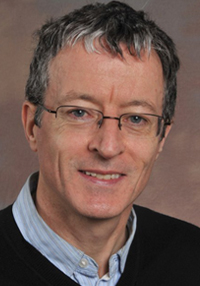 |
Derek O’Hagan, PhD view abstract | back to agenda
Fellow and Senior Advisor, GlaxoSmithKline
Derek O’Hagan, PhD is a Senior Advisor and Fellow in Research and Development at GSK Vaccines, Rockville. Formerly, he was the Global Head of Discovery Support and New Technology in GSK and the Global Head of Vaccine Chemistry and Formulation for Novartis Vaccines. O’Hagan has co-authored >150 original research publications, >60 book chapters and reviews and is named inventor on >60 filed patents. He was awarded the Conference Science medal of the Royal Pharmaceutical Society of Great Britain in 1997, and the Young Investigator Research Achievement Award of the Controlled Release Society in 1999. O’Hagan is a Fellow of the American Association of Pharmaceutical Scientists. |
 |
 |
David K. Robinson, PhD view abstract | back to agenda
Deputy Director, CMC Vaccines Development and Surveillance, Bill & Melinda Gates Foundation
As Deputy Director, CMC Vaccines Development and Surveillance, David and his team work with internal and external partners to develop manufacturing technologies and execute CMC strategies to advance the foundation’s goal to save lives and reduce healthcare inequities. David received his Bachelor’s degree from the University of California, Berkeley, and his Doctorate from the Massachusetts Institute of Technology, both in chemical engineering. David did his post-doctoral studies at the ETH in Zurich. David previously spent 25 years at Merck, holding VP positions as head of Bioprocess R&D, Biologics Project Leadership and CMC Regulatory. |
 |
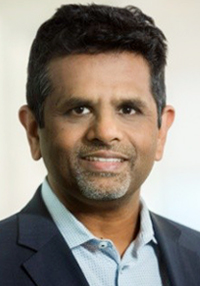 |
Rahul Singhvi, ScD view abstract | back to agenda
Chief Operating Officer, Vaccine Business Unit, Takeda Pharmaceutical Company
Rahul Singhvi is the Chief Operating Officer of Takeda’s Global Vaccine Business Unit and is responsible for global supply of vaccines at the Takeda Pharmaceutical Company. Before joining Takeda, Dr. Singhvi was President and CEO of Novavax, Inc. a Nasdaq-listed biotechnology company. During his tenure at Novavax, Dr. Singhvi transformed the company from a specialty pharmaceutical business into a leading vaccine company. Dr. Singhvi’s professional career began at Merck & Co., where he held several positions in R&D and manufacturing over a 10 year tenure.
Dr. Singhvi serves as an Observer on the Board of Univercells SA and as a member of the Executive Advisory Board at the Leonard Davis Institute (LDI) of Health Economics at the University of Pennsylvania.He volunteers as a mentor instructor in the Undergraduate Projects Opportunity Program (UPOP) at MIT.Dr. Singhvi graduated as the top ranked chemical engineer from IIT, Kanpur, India, and obtained both his MS and ScD chemical engineering degrees from MIT. He received an MBA degree from the Wharton School of the University of Pennsylvania, where he graduated as a Palmer Scholar. |
 |
 |
Stacy L. Springs, PhD view abstract | back to agenda
Senior Director of Programs; Executive Director, Biomanufacturing Initiatives, Center for Biomedical Innovation, Massachusetts Institute of Technology
Dr. Stacy L. Springs is the Senior Director of Programs at MIT’s Center for Biomedical Innovation. She serves as Executive Director of both the Biomanufacturing Program (BioMAN) and the Consortium on Adventitious Agent Contamination in Biomanufacturing (CAACB). The objective of the BioMAN is to develop new knowledge, science, technologies and strategies that advance the manufacture and global delivery of high quality biopharmaceuticals. The CAACB pools biopharmaceutical manufacturing expertise in the area of adventitious agent contamination to better enable the safe and dependable delivery of life-saving biologics. Dr. Springs has also been appointed the Associate Director of the National Institute for Innovation in Manufacturing Biopharmaceuticals (NIIMBL), a NIST-funded public-private consortium which is a member of the Manufacturing USA network and is the only national institute dedicated to advancing biopharmaceutical manufacturing innovation. Prior to joining MIT, she was a Senior Scientist and Director of Collaborative Projects at Tetralogic Pharmaceuticals, an oncology drug discovery company based in Malvern, PA. Her academic background includes a PhD in Chemistry from the University of Texas at Austin and postdoctoral training in protein and biophysical chemistry at Princeton University. |
 |
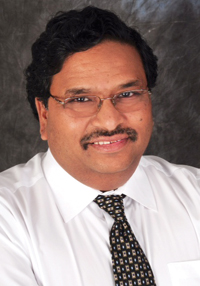 |
Indresh Srivastava, PhD view abstract | back to agenda
Site Head, Manufacturing Technology, Protein Sciences Corporation, Sanofi Pasteur
Indresh Srivastava joined Protein Sciences Corporation in 2012 as the Senior Project Manager, and became the Head of Bioprocess Development. He made significant contributions in process optimization, improving the yield of Flublok, and performing comparability studies to implement process changes to the approved process, and for the licensure of Pearl River, and Unigen facilities for the production of Flublok. Indresh has a strong background in vaccines development, particularly in immunogen design, purification, analytical and formulation development, and has published extensively (>120 publications) in these areas. He has co-edited the book, "Development of Vaccines: From Discovery to Clinical Testing" that was published by John Wiley and sons in 2011. Previously, Indresh spent more than twelve years at Chiron Corporation/Novartis Vaccines and Diagnostics, Inc. in various capacities, including Head (AI), Protein Biochemistry; Head, Vaccine Manufacturing; and Head, Protein Expression and Analytics. For the wo years, Indresh was at the Vaccine Research Center, a division of the National Institute of Allergy and Infectious Diseases, where he led the purification, analytical and formulation development of Chikungunya vaccine for clinical evaluation. |
 |
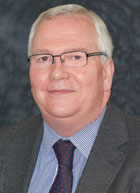 |
Martin Wisher, PhD view abstract | back to agenda
Senior Regulatory Consultant, Quality & Regulatory Management, MilliporeSigma
Dr Wisher has more than 34 years’ experience in biosafety testing, validation and regulatory affairs. He has worked for BioReliance, UK, for 29 years, since the company was founded in Stirling in 1990, acting as Scientific Director since 1993. He has extensive experience in the technical, scientific, quality and regulatory aspects of biological product quality control and manufacture. Prior to joining BioReliance, Dr Wisher worked for Inveresk Research as Manager of Immunology, responsible for biosafety services. He obtained a PhD in membrane biochemistry from the National Institute for Medical Research, London, and prior to moving to the contract research industry was involved in research on membrane receptors, monoclonal antibodies and recombinant vaccines. Martin is a member of the PDA Regulatory Affairs & Quality Advisory Board (RAQAB), a member of the Alliance for Regenerative Medicine (ARM) European Regulatory Affairs Committee, Deputy Chairperson of the Animal Cell Technology Industrial Platform (ACTIP) and member of Biophorum Cell & Gene Therapy Regulatory Strategy Working Group. |
 |
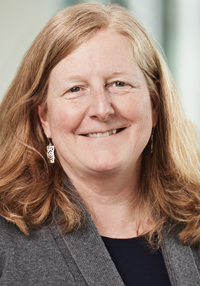 |
Jacqueline Wolfrum, PhD back to agenda
Associate Director, Biomanufacturing Program, Center for Biomedical Innovation, Massachusetts Institute of Technology
Dr. Jacqueline Wolfrum is the Associate Director of the Biomanufacturing Program (BioMAN) at MIT’s Center for Biomedical Innovation (CBI), where her work includes managing sponsored research programs and advancing BioMAN’s initiatives in the area of cell and gene therapy manufacturing. She was the inaugural Strategic Programs and Partnerships Advisor for the National Institute for Innovation in Manufacturing Biopharmaceuticals (NIIMBL). She previously worked on development of microbioreactors for the culture of mammalian cells in the laboratory of Professor Rajeev Ram in the Physical Optics and Electronics Group at MIT’s Research Laboratory of Electronics (RLE). She has more than 15 years of experience in research, development, and manufacturing support for the cGMP cell therapy products and cell-based medical devices in previous positions at W.R. Grace and Genzyme Tissue Repair/Genzyme Biosurgery. Dr. Wolfrum received an SB in Chemical Engineering from MIT and a PhD in Biomedical Engineering from RPI. |
 |
|
|
|
|